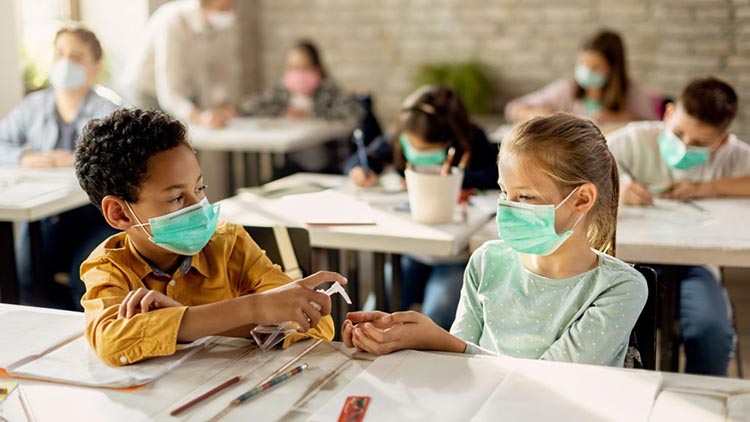
We must take this moment to re-imagine how we can better serve children, families and communities
From K-12 Dive
By Shawna De La Rosa
May 12, 2021
Dive Brief:
A recent report from the Learning Policy Institute and Spencer Foundation explores opportunities for creating equity in summer learning programs and beyond as the public education system recovers from COVID-19, asserting that remediation designed to address learning loss must be inclusive and focused on the whole child. Otherwise, these efforts could further segregate and stigmatize children, deepening inequities, the report said.
The report suggests six design principals to adopt in order to avoid returning to the “old normal,” including: centering learning on relationships; creating a culture of affirmation and belonging; building on students’ interests for a holistic learning approach; engaging students’ and families’ knowledge for disciplinary approaches; providing creative and inquiry based learning; and addressing educator needs and learning.
“While we consider how to help children grappling with trauma and anxiety, we must also take this moment to re-imagine how we can better serve children, families and communities, particularly those who have been marginalized by inequitable systems,” report co-author Linda Darling-Hammond, president and CEO of the Learning Policy Institute and the Charles E. Ducommun Professor of Education Emeritus at Stanford University, said in a press release.
Dive Insight:
Summer programs have been touted as especially important in the K-12 recovery from COVID-19 learning disruptions. A five-year study published in July in American Education Research Journal showed 52% of students lost an average of 39% of their total school year gains over the summer months.
While most districts now have some form of in-person learning, many students still only attend school part-time, so learning loss may be more drastic. Differences in social determinants like income, parental time availability and parenting skills may also be widening the educational equity gap.
This summer, districts can strengthen their programming using federal relief funds from the American Rescue Plan.
The LPI report suggests that summer programming include research-based strategies that have social-emotional components alongside academics. Education stakeholders who spoke during a recent webinar by LPI and AASA, The School Superintendents Association, said summer programs should be focused on hands-on experiential learning and instruction that motivates students.
Last summer, Alexandria City Public Schools in Virginia provided all PK-5 students with summer learning course kits. The opt-out virtual learning program for pre-K through 12th grade students was designed with all of the district’s 16,000 students in mind and utilized project-based instruction and virtual field trips. This year, the district has been working with outside partners to improve the program, in addition to sharing summer school information with parents early in the process. Last summer’s program cost about $500,000, which was mostly related to salaries and supplies.
Photo: Brookings Institution
Read this and other stories at K-12 Dive

